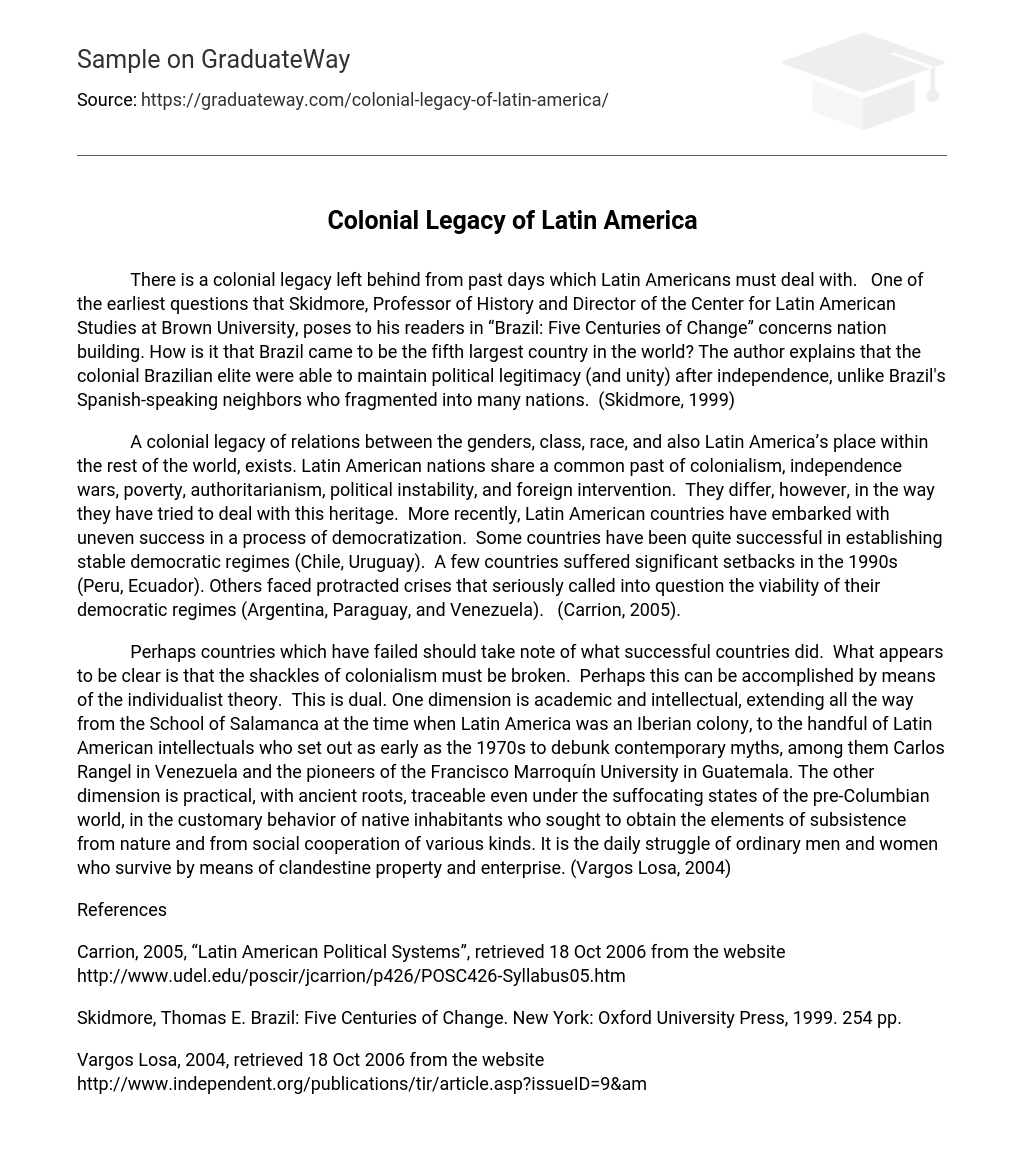There is a colonial legacy left behind from past days which Latin Americans must deal with. One of the earliest questions that Skidmore, Professor of History and Director of the Center for Latin American Studies at Brown University, poses to his readers in “Brazil: Five Centuries of Change” concerns nation building. How is it that Brazil came to be the fifth largest country in the world? The author explains that the colonial Brazilian elite were able to maintain political legitimacy (and unity) after independence, unlike Brazil’s Spanish-speaking neighbors who fragmented into many nations. (Skidmore, 1999)
A colonial legacy of relations between the genders, class, race, and also Latin America’s place within the rest of the world, exists. Latin American nations share a common past of colonialism, independence wars, poverty, authoritarianism, political instability, and foreign intervention. They differ, however, in the way they have tried to deal with this heritage. More recently, Latin American countries have embarked with uneven success in a process of democratization. Some countries have been quite successful in establishing stable democratic regimes (Chile, Uruguay). A few countries suffered significant setbacks in the 1990s (Peru, Ecuador). Others faced protracted crises that seriously called into question the viability of their democratic regimes (Argentina, Paraguay, and Venezuela). (Carrion, 2005).
Perhaps countries which have failed should take note of what successful countries did. What appears to be clear is that the shackles of colonialism must be broken. Perhaps this can be accomplished by means of the individualist theory. This is dual. One dimension is academic and intellectual, extending all the way from the School of Salamanca at the time when Latin America was an Iberian colony, to the handful of Latin American intellectuals who set out as early as the 1970s to debunk contemporary myths, among them Carlos Rangel in Venezuela and the pioneers of the Francisco Marroquín University in Guatemala. The other dimension is practical, with ancient roots, traceable even under the suffocating states of the pre-Columbian world, in the customary behavior of native inhabitants who sought to obtain the elements of subsistence from nature and from social cooperation of various kinds. It is the daily struggle of ordinary men and women who survive by means of clandestine property and enterprise. (Vargos Losa, 2004)
References
Carrion, 2005, “Latin American Political Systems”, retrieved 18 Oct 2006 from the website http://www.udel.edu/poscir/jcarrion/p426/POSC426-Syllabus05.htm
Skidmore, Thomas E. Brazil: Five Centuries of Change. New York: Oxford University Press, 1999. 254 pp.
Vargos Losa, 2004, retrieved 18 Oct 2006 from the website http://www.independent.org/publications/tir/article.asp?issueID=9&articleID=17





